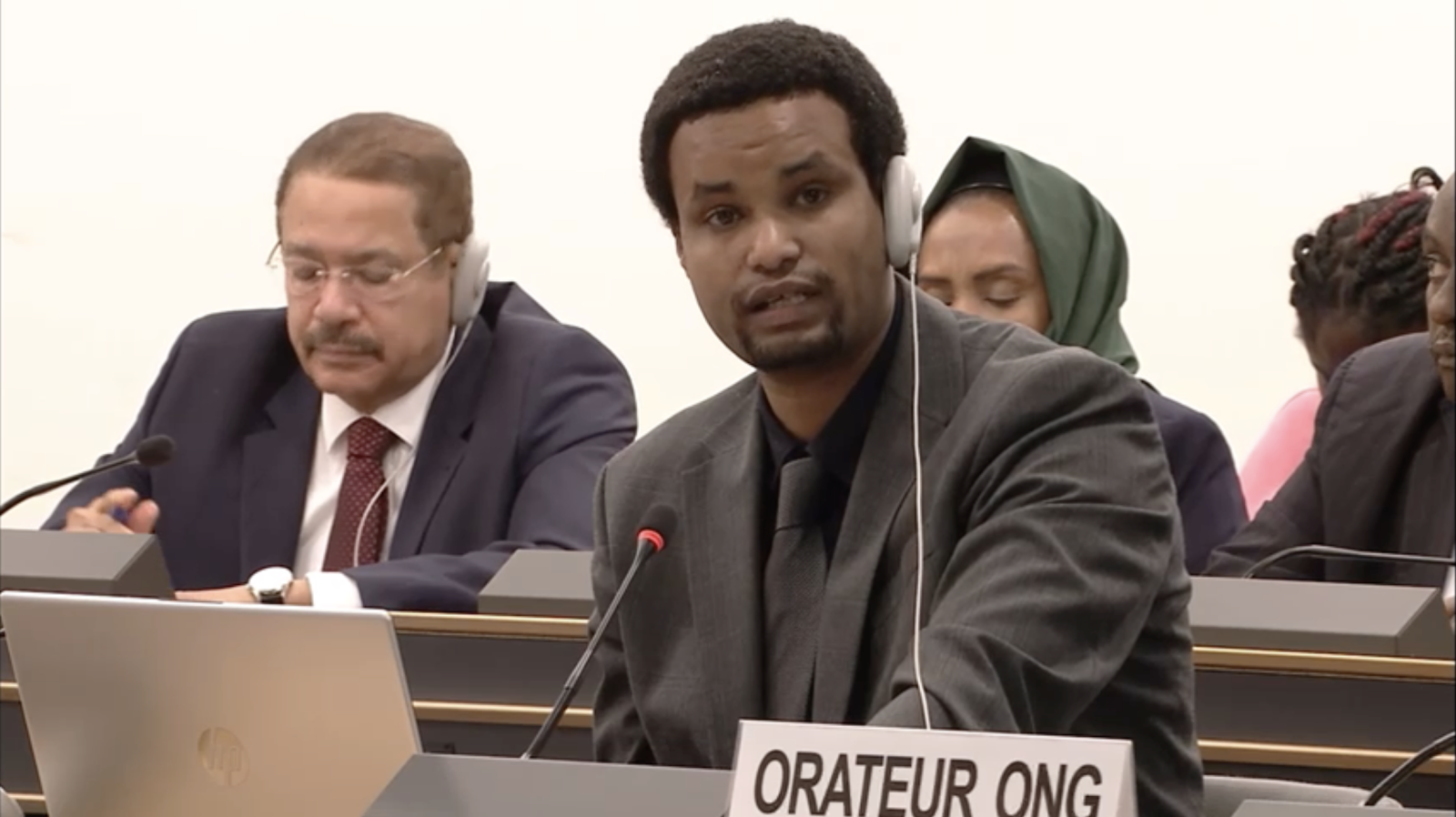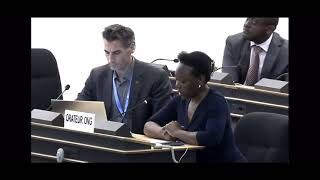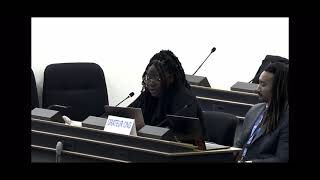International Day of Democracy - 15 September

By Minna Adlan / GICJ
“Democracy is not just about casting a ballot, but about ensuring that every voice is heard, every right is protected, and every person is free to shape their future.”
Each year on 15 September, the world observes the International Day of Democracy, which was established by the United Nations General Assembly through resolution A/RES/62/7 back in 2007. This day offers an opportunity to reflect on the state of democracy worldwide, reaffirm its principles, and examine the challenges that threaten its core foundation.
The values of participation, equality, accountability, as well as respect for human rights are pillars to building a sustainable democratic society. Yet today democracy continues to be tested with significant pressure looming from factors like shrinking civic spaces and disinformation, to authoritarian practices, systemic corruption, and the unequal enjoyment of our fundamental rights and freedoms.
The International Day of Democracy is not only a symbolic moment of recognition, but a call to action to defend democratic principles, strengthen inclusive institutions, and ensure that democracy can pave a stable pathway to peace, justice, and sustainable development.
Why Does Democracy Matter?
At the heart of the Universal Declaration of Human Rights, as well as the International Covenant on Civil and Political Rights (ICCPR) lies the core essence of democratic practice and values, because it does not only guarantee the right to vote but also freedoms of expression, association, assembly, and participation in public affairs. The 2030 Agenda for Sustainable Development identifies democratic governance and the rule of law as vital pillars towards achieving progress with the Sustainable Development Goals (SDGs), especially Goal 16 which states Peace, Justice, and Strong Institutions. Nevertheless democracy is not a given, but requires constant support and nurturing from societies. The erosion of our democratic principles threatens not just political freedoms but slows down, in some cases reverses, development in fulfilling our economic and social rights.
Key Challenges Facing Democracy Today
Shrinking Civic Space:
Civil society organizations, journalists, and human rights defenders continue to face restrictions through laws that limit their freedom of assembly, surveillance, and reprisals. According to CIVICUS Monitor, 2024, over 70% of the world’s population now lives in countries where civic space has been “closed”, “repressed” or “obstructed”. The report mentions only 40 out of 198 countries and territories have an open civic space rating,which remains to be a concerning number.
Disinformation and Digital Manipulation:
There have been transformations in the way information is delivered and communicated due to change in social media and use of AI which have opened doors to disinformation campaigns, online harassment (particularly against activists and young human rights defenders), as well as algorithmic bias that continues to distort democratic debate. In many instances, digital platforms are utilized and exploited to suppress dissent, manipulate critical aspects of society, like elections, or target vulnerable and marginalized groups.
Authoritarianism and Democratic Backsliding:
Many states are witnessing the concentration of power which sidelines parliaments, courts and electoral institutions that were meant to balance power. Authoritarian leaders often claim democratic legitimacy but in reality, they are systematically undermining checks and balances.
Inequalities in Participation:
Even when elections do occur, women, minorities, youth, as well as other marginalised communities continue to be underrepresented in the political landscape, and without their inclusive participation, democracy risks becoming hollow, as it serves the interests of specific groups of people rather than the broader needs of the population.
UN Action on Democracy
The United Nations consistently promotes democracy as an integral factor of peace, human rights and development. The UNDP’s Democratic Governance Programme works with over 170 countries to strengthen their electoral processes, better civic engagement, and empower the rule of law and their respective institutions. The UN Human Rights Council also repeatedly affirmed the fact that democracy, development, and human rights are interdependent and mutually reinforce one another, and it also mandated the Office of the High Commissioner for Human Rights (OHCHR) to assist states in building their inclusive democratic institutions and uphold their electoral integrity.
Digital Democracy and the Risk of Exclusion
Debates around digital governance have highlighted both opportunities and risks for democracy. Digital tools enhance participation, empower young voices, and help increase governmental transparency, such as Kenya’s e-parliamentary platforms, or Estonia’s e-voting system; they are examples of how technology can modernize and make governance more efficient. However, the digital divide remains a vital issue to uncover, where according to UNICEF and ITU, 63% of youths aged 15 to 24 years, around 760million youths lack internet access at home. This exclusion undermines the promise of digital democracy and risks reinforcing inequalities. It also excludes voices that are necessary to the shaping of democratic institutions, by not enabling platforms for them to engage and express themselves, not providing learning opportunities for them to meaningfully partake in the digital discourse of society and community’s challenges.
Internet shutdowns have been used as tools of repression during protests such as in Myanmar, Uganda and Iran. In the United States, the spread of misinformation on social media continues to erode public trust in democratic processes, while surveillance technology threatens privacy rights, and paralyses free expression and association.
The case of digital democracy emphasizes a crucial truth, which is that while technology is not inherently democratic, , it can empower or oppress, depending on who holds the narrative, how it's regulated, and how it's used.
Democracy and Human Rights: Our Shared Struggle
Democracy and human rights are inseparable, and where democratic governance fails, the result is human rights abuses like arbitrary arrests of those who oppose, censorship of journalists, and violent crackdowns on protests. Women and youth, especially from marginalised groups, often bear the burden of these violations. Despite progress, women continue to hold 27.2%% of parliamentary seats globally (IPU, 2025). Young people under 30 remain severely underrepresented in political decision-making, even though they make up about half of the world’s population.
A truly democratic system needs to amplify the voices of those most often excluded and address the unequal, and unfair, structural barriers to their meaningful participation.
The Geneva International Centre for Justice (GICJ) firmly believes that democracy is essential to the realisation and protection of all human rights and in our pursuit of justice, equality, and peace. Democracy cannot exist in name alone and must be reflected in free and fair elections, inclusive participation, rule of law, accountable institutions, and the protection of our fundamental freedoms. GICJ is gravely concerned by;
- The shrinking of civic spaces and harassment of civil society,
- The growing misuse of technology to spread disinformation, enable surveillance, and silence dissent,
- Persistent inequalities which may exclude women, youth, and marginalised groups from political participation,
- The rise of authoritarian practices and the erosion of checks and balances in many parts of the world.
GICJ calls on states to guarantee safe and enabling environments for journalists, activists, and human rights defenders, ensure digital rights and digital literacy to bridge the digital divide and protect citizens from manipulation, strengthen independent judiciaries, parliaments, and oversight institutions, adopt gender-sensitive and youth inclusive reforms that ensure equal political representation and inclusion, as well as uphold international human rights standards and ratify relevant treaties that can help safeguard democratic principles.
Democracy is a continuous process, and not a final destination, which means it requires constant awareness, adaptation, and commitment to human dignity.
On this International Day of Democracy, GICJ reaffirms that without democracy, there can be no lasting peace, without human rights, democracy cannot survive. The international community needs to work together to defend democratic values not just in words, but in practice for the sake of our past, current, and future.
Resources:
- People Under Attack (2024), CIVICUS Monitor: https://civicusmonitor.contentfiles.net/media/documents/GlobalFindings2024.EN.pdf
- Democratic Governance, UNDP: https://www.undp.org/sites/g/files/zskgke326/files/publications/DemGov.pdf
- Inclusive Democratic Governance, Strategy Paper (Tanzania Democratic Governance Program), UNDP: https://files.acquia.undp.org/public/migration/tz/Governance-Strategy-Paper.pdf
- Mandate of the UN Human Rights: https://www.ohchr.org/en/about-us/mandate-un-human-rights
- How Many Children and Young People Have Internet Access at Home, UNICEF & ITU:https://www.unicef.org/media/88381/file/how-many-children-and-young-people-have-internet-access-at-home-2020.pdf
- Women in Parliament, Inter-Parliamentary Union (2025): https://www.ipu.org/resources/publications/reports/2025-03/women-in-parliament-1995-2025







